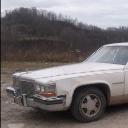Yahoo Answers is shutting down on May 4th, 2021 (Eastern Time) and beginning April 20th, 2021 (Eastern Time) the Yahoo Answers website will be in read-only mode. There will be no changes to other Yahoo properties or services, or your Yahoo account. You can find more information about the Yahoo Answers shutdown and how to download your data on this help page.
Trending News
18 Answers
- BortLv 73 years ago
It might not run as well and over time of using low octane fuel carbon and other residue builds up faster internally in the engine - it won't last as long.
- Anonymous3 years ago
Damage to the engine
- The DevilLv 73 years ago
Usually when the manufacturer requires high octane fuel, to choose otherwise can damage the engine. Required, is not for performance, it's for damage prevention. I had a '69 850 Spider that required 100 octane and after mistakenly fueling it with "regular" I had to rebuild it since the rings on a few pistons were shattered. Maybe your computer can detune your engine enough to prevent this if you want to try that experiment- maybe . You might have trouble getting up to freeway speed. It makes that much difference. If your car has a carburetor, it is not computer tuned. You're going to mess it up really bad.
- Anonymous3 years ago
I doubt it requires 93 unless it has a rare 11:1 or higher compression ratio engine, 91 or better should run fine at sea level.
An LS3 engine requires 91 but they still run fine on mid grade fuel as long as you don't get the ethanol cut crap gasoline.
You can try a few gallons of 91 or mid grade no ethanol on an empty tank to see how it runs, if it starts pinging, you need
to back off the power and fill the tank with high octane. Simply asking this question is a bad deal, especially if this is an old
pre unleaded era engine like a commonly asked issue on old RV's with a 454 truck engine that needs hardened head valves
and guides installed to run on modern unleaded gasoline. Your question breeds more questions then answers with no year-
model-engine info.
Many old car engines can be retrofitted with TB EFI and electronic spark modules that make them far better daily drivers.
Your main issue will be the auto choke setting if you live in winterland, carburetors hate cold weather starting conditions.
- How do you think about the answers? You can sign in to vote the answer.
- thebax2006Lv 73 years ago
You need to determine if the motor "pigs". When the gas tank gets near empty put 5 gallons of 87 octane gasoline in the tank.
After driving for 20 minutes to make sure the motor is all the way to operating temperature find a steep hill and accelerate fast while going up it.
If you here a metallic popcorn popping noise from the motor that is called pinging. That happens when gasoline explodes prematurely in your motor due to heat and pressure. More octane is needed to stop the pinging. If you keep driving using 87 octane gasoline and the motor pings a lot you'll end up with a hole in your piston and need over $3000 worth of repairs.
Source(s): Mitsubishi Master Tech - FlagMichaelLv 73 years ago
A carburetor also means it is probably old enough not to have knock sensors to control detonation. I once bought from a friend a carb'd car that required premium (1970 Volvo 145) but had been run day after day on regular. Pressing on the throttle too much brought up a storm of crackling from detonation. It also burned oil like crazy. When I tore the engine down I found the upper compression ring in every cylinder was broken and one cylinder had a channel torched in it from the broken ring.
- Anonymous3 years ago
engine damage
- Anonymous3 years ago
possible loss of power, dieseling when the engine is turned off, maybe lower fuel economy




